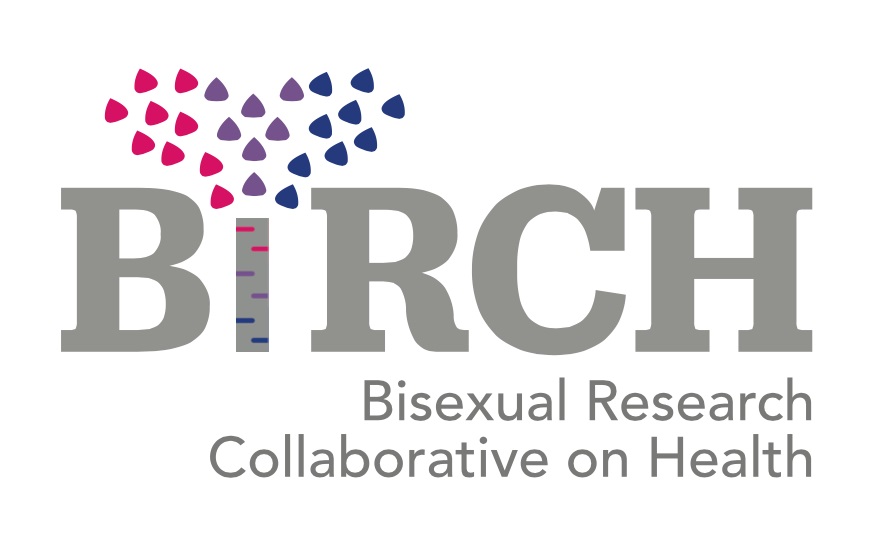Overlapping Flags: Loving Beyond the Gay/Straight Binary
By Ellyn Ruthstrom I was gathering with a group of LGBTQ activists outside the Trump Hotel in Washington, DC for a dance party on a global-warming-kind-of-day in January 2018. The action was to thumb our noses at the horror that had taken over the White House the previous year and to make the statement that […]
Lessons from the Field: What We Are Learning About Representation from Black Bi+ Men
By H. “Herukhuti” Sharif Williams and David J. Cork In 2016, we started the amazing task of documenting the stories of Black men on what it is to be sexually fluid in the United States. Black bi+ cisgender and transgender men as well as gender non-conforming people living within the complex spectrum of masculinities have […]
It’s Never “Just a Movie”
By Gabrielle Blonder As a tween, I spent many a weeknight watching Buffy the Vampire Slayer. I loved the creepy-crawlies, I loved the witty banter that was always ever-so-slightly over my level of understanding, and I loved the campy fight scenes. But most of all, I loved Willow Rosenberg. In Willow, I saw my own […]
Health and Wellbeing on the Margins: Exploring the Intersections of Biracial and Bisexual Identities

By Deana Williams, MPH As a first-year doctoral student at Indiana University, I am grateful for the meaningful experiences and collaborations I have had thus far while working at The Center for Sexual Health Promotion. Growing up, I faced challenges with openly embracing my identity as a queer black woman. I struggled to make peace […]
Why Bi+ Representation On-Screen Matters When Thinking About Intimate Partner Violence
Content warning: domestic violence, sexual violence, bi+ erasure, biphobia By Sarah Karerat Representation — and in many cases, the lack thereof — has real-world effects. We’ve heard this countless times, yet have we thought critically about how far-reaching the impact of representation truly is? Consider the high rates of violence that the bi+ community faces. […]
The Changing Tide: My Experiences with Conducting Bisexual Health Research

By Elizabeth (Lizzy) Bartelt, MPH As a doctoral student at the Indiana University Center for Sexual Health Promotion, I am lucky enough to have many one-of-a-kind experiences, from traveling to conferences to present research to sharing meals with my intellectual heroes, but my favorite by far is being able to conduct important research on bisexual […]
Can You See Us Now? New Research Publication Helps to Shed Scientific Light on Bisexual Health

Indiana University researcher Brian Dodge, associate director of the Center for Sexual Health Promotion at the School of Public Health-Bloomington, and Wendy Bostwick, associate professor at the University of Illinois at Chicago College of Nursing, recently guest edited a special section of Archives of Sexual Behaviorfocusing on bisexual health research. This is the first time the journal has dedicated a […]
Bisexual+ Youth of Color
Today Bisexual Health Awareness Month centers on bisexual+ youth of color, whose needs and experiences are often ignored, erased, and unaddressed. Bisexual+ youth of color experience biphobia and racism, which have profound effects on their health and access to services. While there is not a lot of data and research on this particular intersection, several […]
An Anomaly, By Angel
These stories and poems by bisexual+ youth were collected by Bisexual Women of Color (BIWOC), a Bisexual Health Awareness Month (BHAM) campaign partner. BIWOC is an organization whose mission is to provide emotional support, resources, community, and a safe space to discuss intersectional issues that affect bi women of color. They welcome all with multi-gender […]
Poem by Maz
These stories and poems by bisexual+ youth were collected by Bisexual Women of Color (BIWOC), a Bisexual Health Awareness Month (BHAM) campaign partner. BIWOC is an organization whose mission is to provide emotional support, resources, community, and a safe space to discuss intersectional issues that affect bi women of color. They welcome all with multi-gender […]